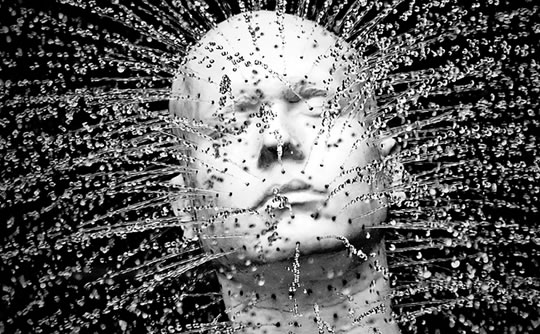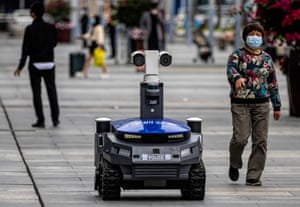Tags
Algorithms., Artificial Intelligence., Big Data, Capitalism vs. the Climate., CORONA VIRUS., Coronavirus (COVID-19), Extinction, Global warming, SMART PHONE WORLD, Technology, The Future of Mankind, Visions of the future.
(Twenty-minute read)
Post COVID-19 this will become a question that we will all have to ask yourselves.
Coronavirus came after a series of wake-up calls.
Perhaps the COVID-19 outbreak is the wake-up call the world needs to get people accustomed to the fact that because of climate change, we all now need to change our lifestyles to protect our lives.
The COVID-19 outbreak should be a wake-up call that the economic and social costs of climate change will likely be so catastrophic – potentially many times worse than what we’re currently witnessing – that as a nation and the community of nations, we can’t afford not to take massive measures to combat and mitigate the dangers.
Confronting climate change will take a global effort far beyond any that’s been on the table so far, and far beyond the voluntary commitments in the Paris Climate accord. 
We don’t yet know how long the COVID-19 outbreak will last, how many people will get sick or die, or the ultimate cost to global wealth and to people’s jobs and homes.
However, it seems obvious to say that, if we can transform the economy for a virus, we can also do so to prevent climate change.
Acres of column inches have already been written about how the Coronavirus is going to change our economies, politics, and societies forever.
We can choose to prioritize something – in this case, human life – above the maximization of profit and even our individual freedom.
Unchecked, climate change will wreak far greater damage on our ability to live safe, profitable, happy, and free lives than COVID-19.
Despite the brief dip in emissions due to COVID-19, there is a risk that the pandemic – which is likely to dominate politics for months or even years to come – will overshadow environmental concerns.
Mortimer Adler Said ” To regard anyone except yourself as responsible for your judgment is to be a slave, not a free man. It is this fact that the liberal arts acquire their name.”
For most of human history, the only other reliable sources of information were other people.
We are becoming symbiotic with our computer tools, growing into interconnected systems that remember less by knowing information than by knowing where the information can be found. If we know that a fact is only a Google away, then we’re not going to waste precious synaptic space on it. Better to let a server remember.
Or is it?
Feel like you’re losing grip of your memory. Google it.
Every time we recall a memory we also remake it, subtly tweaking the neuronal details. (This is why the more we remember something, the less accurate the memory becomes.) Although we like to think of our memories as being immutable impressions, somehow separate from the act of remembering them, they aren’t.
A memory is only as real as the last time you remembered it.
The brain has no interest immaculate recall – it’s only interested in the past to the extent it helps us make sense of the future.
By having memories that constantly change, we ensure that the memories stored inside our mental file cabinets are most relevant.
Although our memories always feel true – as a literal recording of the past – they’re mostly not, since they’re always being edited and bent by what we think now. And now. And now.
And this is where the internet comes in. One of the virtues of transactive memory is that it acts like a fact-check, helping ensure we don’t all descend into selfish solipsism. ( Solipsism: The theory that the self is the only thing that can be known and verified)
By sharing and comparing our memories, we can ensure that we still have some facts in common, that we all haven’t disappeared down the private rabbit hole of our own reconsolidations.
I don’t think it’s a sign that technology is rotting our cortex – I think it shows that we’re wise enough to outsource a skill we’re not very good at.
Because while the web enables all sorts of other biases – it lets us filter news, for instance, to confirm what we already believe – the use of the web as a vessel of transactive memory is mostly virtuous. We save hard drive space for what matters, while at the same time improving the accuracy of recall.
But if a fact stored externally were the same as a memory of that fact stored in our mind, then the loss of internal memory wouldn’t much matter.
External storage and biological memory are not the same things.
When we form, or “consolidate,” a personal memory, we also form associations between that memory and other memories that are unique to ourselves and also indispensable to the development of deep, conceptual knowledge.
The associations, moreover, continue to change with time, as we learn more and experience more.
The essence of personal memory is not the discrete facts or experiences we store in our mind but “the cohesion” which ties all those facts and experiences together.
What is the self but the unique pattern of that cohesion?
Our over-reliance on google and the smartphone search engines is destroying our memories – ‘digital amnesia’.
Google in its very nature is making us stupid, making us more likely to recall where the facts are rather than the facts themselves.
We hold the answers to just about all of life’s questions in our palms today. But that means our brains are feeling free to take some R & R.
If you have no working memory, you can have no longterm memory and you understand very little.
The growing reliance on the world wide web for fact-checking is rotting our memories.
We off-load memories to the cloud just as readily as we would to a family member, friend, or lover.
Almost all information today is readily available through a quick internet search. It may be that the internet is taking the place not just of other people as external sources of memory but also of our own cognitive faculties becoming an extension of our own intelligence, rather than a separate tool.
At this point, you might be asking why is any of this important.
Indeed, As the specter of creeping authoritarianism – as emergency disaster measures become normalized, or even permanent – it should be at the forefront of our minds.
Because the consequences of COVID-19 will reorder society in a dramatic way, and this combined with climate change we are witnessing a tipping point as to how the world is going to work.
Unfortunately, we constructed a world that could not be more suited to a Pandemic – density everywhere- inward rural migration and now Data harvesting.
We can expect greater efforts to digitally capture and record our behavior in urban areas – and fiercer debates over the power such surveillance hands to corporations and states.
One consequence of coronavirus could be an entrenchment of exclusionary political narratives, calling for new borders to be placed around urban communities – overseen by leaders who have the legal and technological capacity, and the political will, to build them.
In other words an intensification of digital infrastructure in our cities to track the spread of COVID-19 using “big data” analysis to anticipate where transmission clusters will emerge next.

This much is certain:
Just as this disease has shattered lives, disrupted markets and exposed the competence (or lack thereof) of governments, it will lead to permanent shifts in political and economic power in ways that will become apparent only later.
It will be a time of contradictions.
Internationally, many issues that appeared pressing prior to the pandemic will likely recede in prominence once the world begins its recovery. All non-coronavirus issues will be pushed aside.
Not only because of a shared experience but also because of the mutual assistance that will be required at the same time, democracies must prevent the emergence of a big brother-style intrusion into the personal sphere by the security apparatus.
Such a thing can only occur in the absence of massive civilian oversight.
Many countries will set up committees of inquiry to find out why they and their healthcare systems were caught unprepared, humanity is destined to return to its old self after the adjustment period ends. And that, on balance, is a good thing.
Coronavirus will not end globalization, but it will change it by disrupting our lives and causing painful tragedy —it may introduce a new acceptance of unpredictability into our thinking.
This is certainly not the last time that we’re going to have these kinds of disease eruptions if we deny, delude, and delay on climate change.
We know what to do to halt climate change, we just have to do it.
Our current sense of risk — such as when it is safe to cross a road — is insufficient to deal with threats that are so dire they must be minimized; we need a complete rethink.
If we don’t we will have unregulated algorithms run the world.
How much of life can now be conducted digitally?
If we can accept canceled flights, closed schools, postponed sporting fixtures now, perhaps we can accept restraints in the future.
If we can rely on international co-operation now, perhaps we can summon the same spirit again.
At some point, a nudge will be required. If the shock of coronavirus disruption isn’t enough for us to recalibrate, what will be?
Our Memories!
We have to recognize there will be other pandemics and be better prepared. We must also recognize that climate change is a deeper and bigger threat that doesn’t go away, and is just as urgent.
All human comments appreciated. All like clicks and abuse chucked in the bin.
get inscribed into our biological memory banks.
